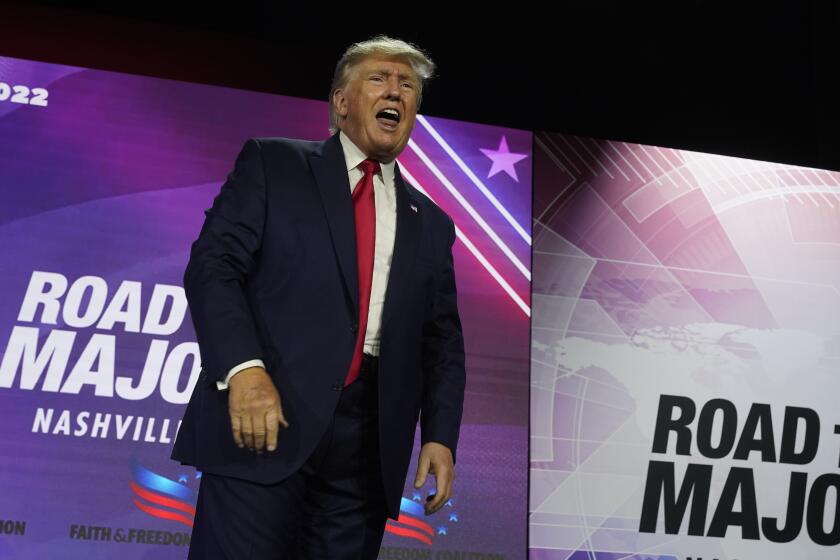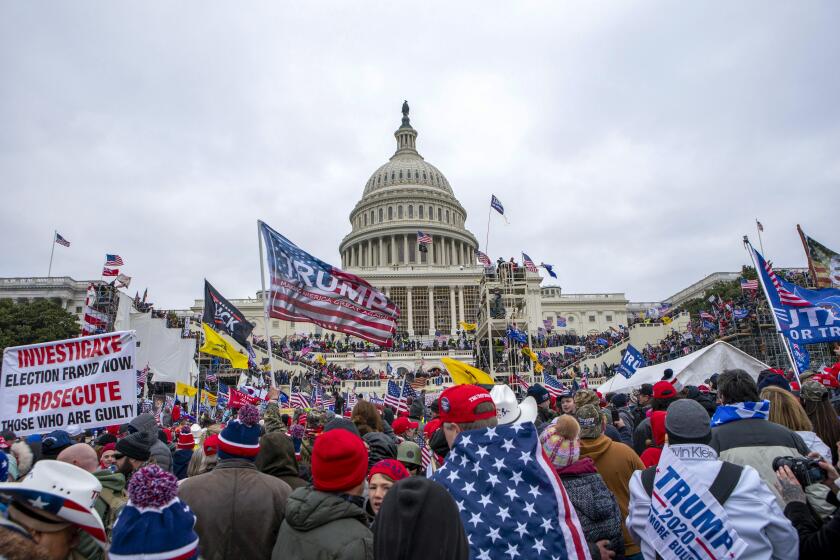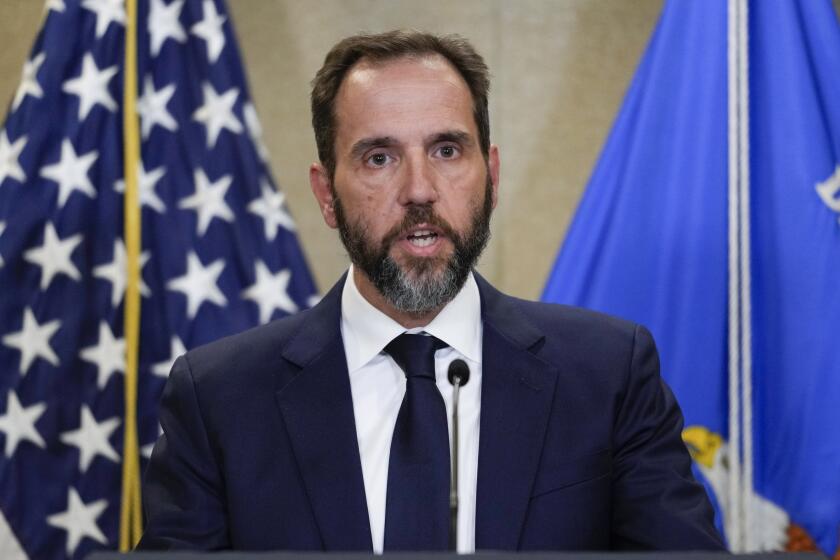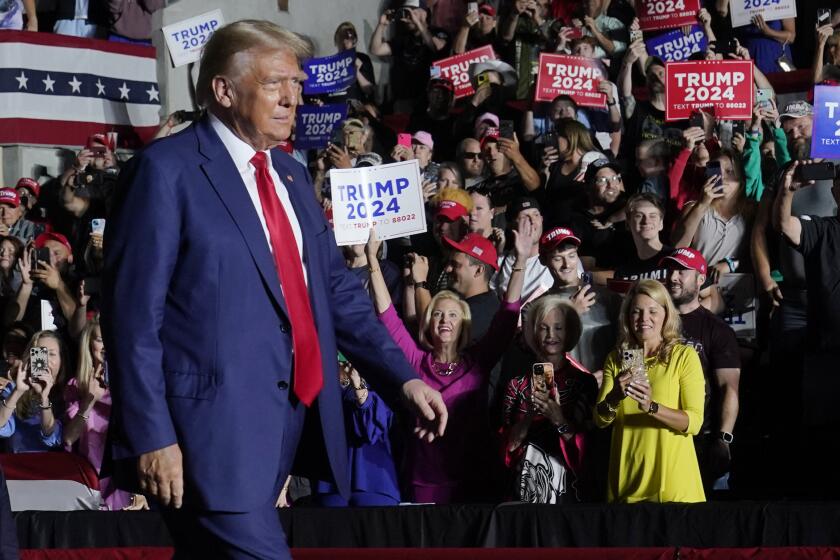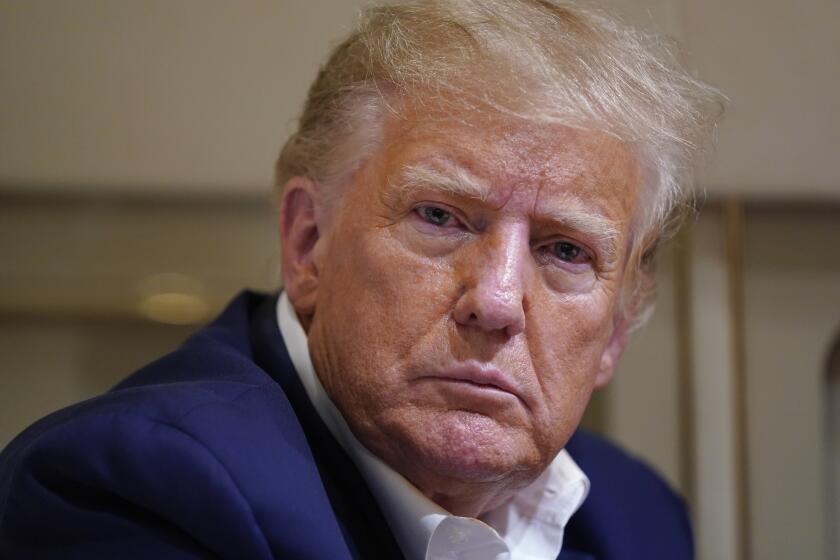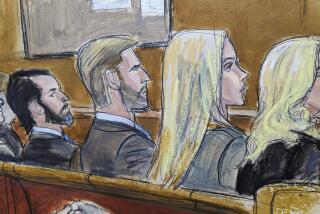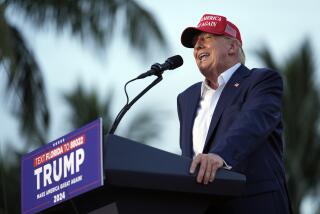Opinion: Trump’s trials should be televised
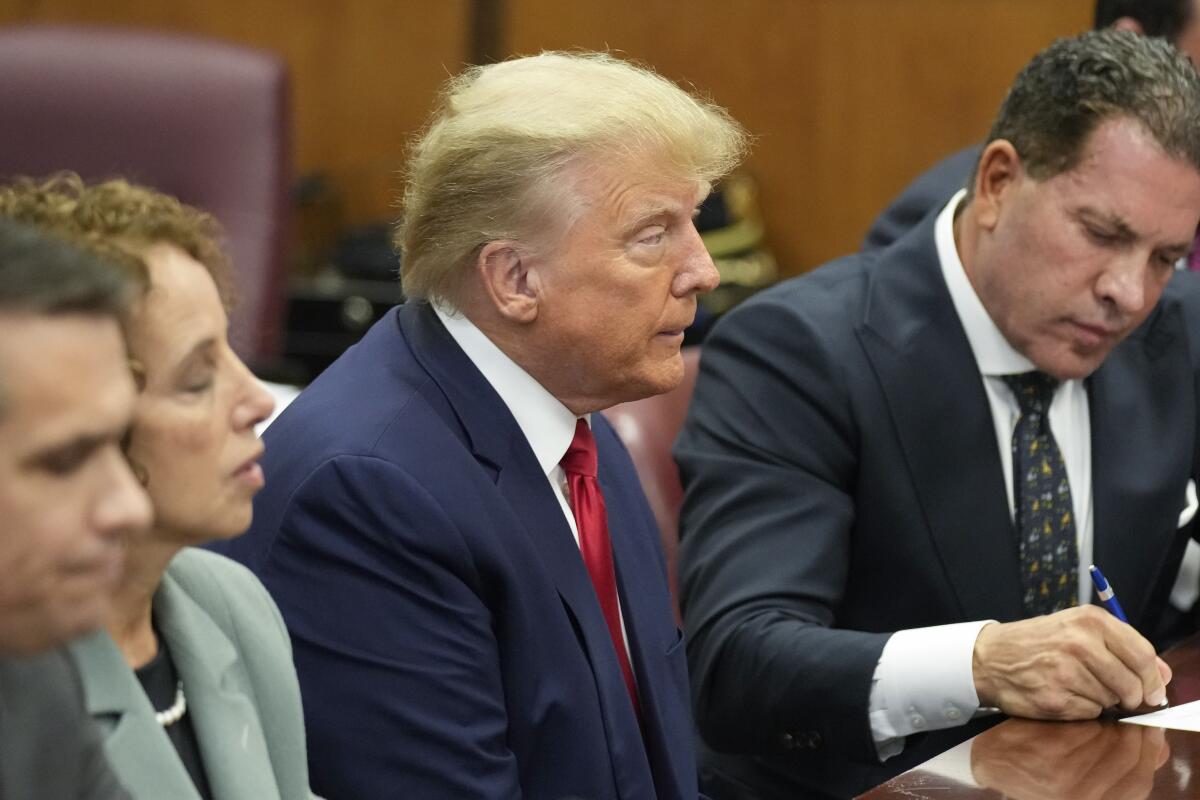
On Thursday, a group of Democratic congressional representatives led by California’s Adam Schiff wrote the Judicial Conference of the United States urging that televising the federal trials of Donald Trump is vital “if the public is to fully accept the outcome.”
It’s impossible to exaggerate the importance of such public acceptance of the jury’s verdict — whatever it is — in the case charging Trump with involvement in conspiracies to overturn the 2020 election.
The rule of law depends upon public trust in its processes. Nothing promotes trust of facts better than what we see with our own eyes.
Holding Trump accountable — and disqualifying him from future office — would not be a partisan act, but one needed to preserve the republic.
Chief Justice John G. Roberts Jr. should use his power as the leader of the judicial conference to ensure the trial’s accessibility to all Americans.
There are good reasons to do so even if contrary to his ordinary instincts. In these extraordinary times, these are no ordinary cases.
First, some background. In 1980, one of us (Tribe) successfully argued Richmond Newspapers vs. Virginia, the U.S. Supreme Court case that ruled that the press and the public have a right to attend and observe federal criminal trials even when both parties and the judge prefer a blackout.
Special counsel Jack Smith’s investigation yielded an indictment of the former president for his role in events surrounding the Jan. 6, 2021, Capitol riot.
Still, the court has yet to take the logical next step — giving that right practical meaning for the nation as a whole. Trial courtrooms typically accommodate fewer than 100 spectators. But a federal court rule prohibits broadcasting of criminal trials.
The trial of Trump over alleged lies about the 2020 election and the Jan. 6, 2021, insurrection is so unique and so historic that treating it as a special exception does not threaten the rule, or even the Supreme Court’s own ban on televising its proceedings.
By statute, the Judicial Conference can recommend to the Supreme Court changes to the rules of the court that promote “fairness in the administration” of justice.
The former president’s “knowingly false claims” eroded the public trust in voting. The Aug. 1 indictment lays it out and a new poll underlines it.
Allowing televising of this trial, with strict court-supervised guardrails, would indisputably have that effect by permitting citizens of every political stripe to form their own judgment of the proceedings adjudicating Trump’s innocence or guilt. Americans will be able to see a former president being treated like any citizen who is accused of a crime.
In the context of the 2024 election in which Trump appears headed to win the Republican Party’s nomination, nothing is more vital. Sunlight here can best enlighten the electorate.
In the ordinary course, while opinions differ about televised court proceedings, the desire to protect their solemnity and to avoid incentives for performative behavior before a broad public audience seems understandable.
The latest indictment of former President Trump is the most serious by far, laying out charges uniquely damaging to democracy. Sadly, it may only help him with his base.
At the same time, the trial of Trump relating to his alleged attempt to end the lawful transfer of presidential power will be America’s most consequential moment of legal accountability since 1807, when Aaron Burr was tried for treason for plotting to wage a violent insurrection against our government.
Giving Americans the opportunity to witness these judicial proceedings directly will help ensure what is needed under the rule of law — faith in the process of getting to the truth.
Because of the Justice Department’s ethical restraints on contemporaneous public statements about trials, in this one, only one side — and one with enormous communication reach — will be amplifying its version of each day’s courtroom events.
We have already seen Trump’s social media posts attacking the federal judge assigned to the case, Tanya S. Chutkan, as “unfair” and special counsel Jack Smith as “deranged.” Trump has also sprinkled in untruths designed to enrage his supporters about being “arrested,” a claim that U.S. Marshals contradicted.
The dangers of misinformation about the fairness of the judicial process are magnified by the reality that so many of today’s television viewers are siloed into outlets that filter news to confirm their audiences’ biases. In addition, fewer Americans than ever read print media that aim for objectivity.
The opportunity to see this trial with one’s own eyes is the obvious remedy.
Former President Trump was indicted on charges related to classified documents found at his Florida estate. Special counsel Jack Smith’s case is historic.
Moreover, with the Supreme Court’s public trust at a low ebb, Roberts supporting the broadcasting of this case could enormously help to reverse that tide. Americans would see him going out of his way to ensure judicial transparency where it matters most.
The courthouse in the Richmond Newspapers case happened to be the one in which Patrick Henry had delivered an impassioned plea for liberty.
Today, all civically minded Americans, joined by the press and electronic media, should be making the same plea to let the light in on the most consequential trial in American history.
Laurence H. Tribe is the Carl M. Loeb university professor of constitutional law emeritus at Harvard University. Dennis Aftergut is a former federal prosecutor, currently of counsel to Lawyers Defending American Democracy.
More to Read
A cure for the common opinion
Get thought-provoking perspectives with our weekly newsletter.
You may occasionally receive promotional content from the Los Angeles Times.
